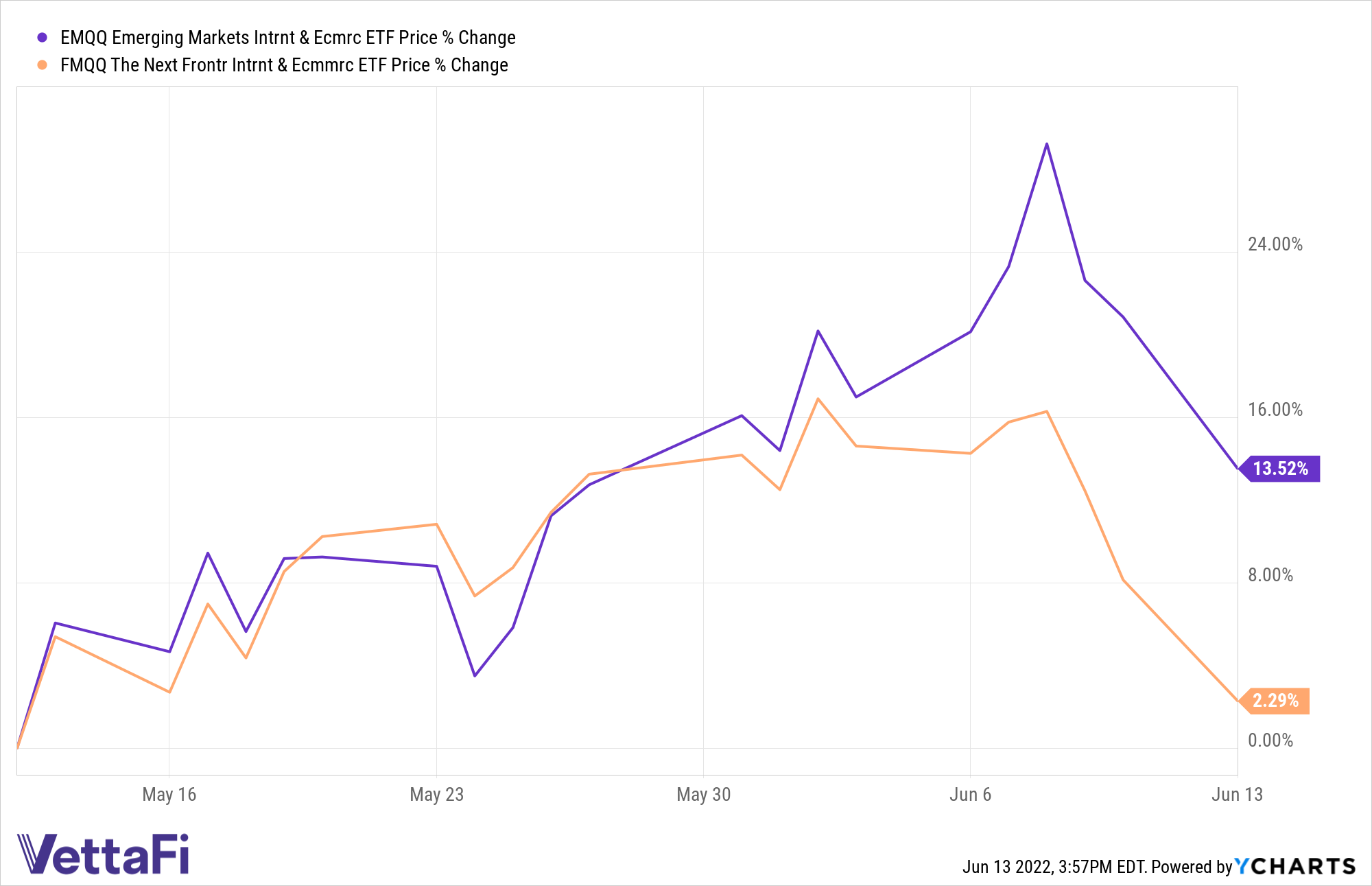Emerging markets may benefit from a possible peak in the U.S. dollar. In a note to clients, Goldman Sachs’ head of emerging markets equity strategy Caesar Maasry and macro research analyst Jolene Zhong wrote that a nearly 3% drop in a key gauge of the dollar since a high point in mid-May suggests a rebound in developing markets.
“Weak U.S. dollar cycles tend to bode positively for emerging-market assets,” Maasry and Zhong added, noting the appeal of the MSCI China Index and early cycle emerging markets in Southeast Asia.
A report from Bloomberg noted that money managers including Fidelity Investments and T. Rowe Price Group are also seeing potential buying opportunities, given the strong valuations.
In addition, Goldman strategist Zach Pandl said he sees the yen outperforming as U.S. recession risks rise. “It works as a safe haven when U.S. demand is slowing, the U.S. economy is going into recession or growth is coming down,” said Pandl in an interview with Bloomberg Television. “We really think that the Japanese yen is the safest currency to be in in this highly uncertain, volatile both macro and market environment.”
If a potential peak in the U.S. dollar winds up serving as a tailwind for emerging markets, then it will also serve EMQQ Global’s Emerging Markets Internet & Ecommerce ETF (NYSE Arca: EMQQ) and Next Frontier Internet & Ecommerce ETF (FMQQ) well. Over the past month, EMQQ and FMQQ have gone up more than 13% and 2%, respectively.

By focusing on the internet and e-commerce in emerging markets, EMQQ looks to capture the growth and innovation happening in some of the largest and fastest-growing populations in the world. More than half of its assets are weighted toward China.
FMQQ, meanwhile, seeks to provide investment results that, before fees and expenses, generally correspond to the price and yield performance of the Next Frontier Internet and Ecommerce Index (FMQQetf.com). While it has the same investment philosophy as EMQQ, FMQQ has no China-based holdings. Securities must meet a minimum of a $300 million market cap and pass a liquidity screen that requires a $1 million average daily turnover.
For more news, information, and strategy, visit our Emerging Markets Channel.

